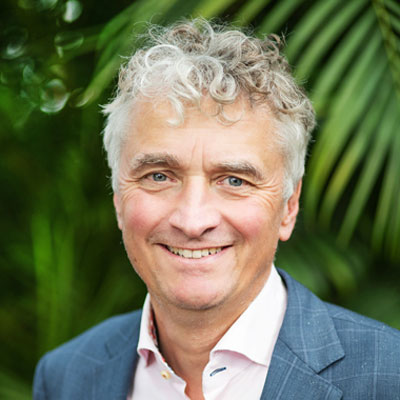Patient-Centered Outcomes for Major Injury

image credit: Gorodenkoff/Shutterstock.com
Patients around the globe will be the ultimate beneficiaries of the world’s first standardized set of Patient-Centered Outcomes Measures for Major Injury, now under development by the International Consortium for Health Outcomes Measurement (ICHOM), with support from the AO’s Innovation Funding.
The 18-month ICHOM project, funded by the Transport Accident Commission (Victoria, Australia), the AO, and the Dutch Stichting ZiektekostenVerzekering Krijgsmacht (Armed Forces Health Insurance Foundation) in tandem with the Ministry of Defence in the Netherlands, aims to drive groundbreaking improvements in how trauma outcomes are measured and evaluated, ultimately enhancing patient care globally.
Prof Michael Schütz, MD, PhD, a practicing trauma surgeon and director of the Jamieson Trauma Institute in Brisbane, Australia, leads the project and is a member of the project Patient-Centered Outcomes Measures Working Group. A globally renowned trauma surgeon, educator, and researcher, Schütz said the current project is perfectly within the AO wheelhouse of education, research, and innovation.
"A perfect place to look for innovation is where you see challenges, and when I look at the overarching challenge of trauma care, it’s that we have various health-care systems around the world and each country’s system has differences to each other," he explained. “But we have never actually compared which systems are actually delivering good care for trauma patients considering the various factors. Ultimately, regardless of the system, we as trauma surgeons want to have the best outcome that is relevant for the patient.”

"A perfect place to look for innovation is where you see challenges, and when I look at the overarching challenge of trauma care, it’s that we have various health-care systems around the world and each country’s system has differences to each other".
Prof Michael Schütz
Patients at the center
Schütz said the project’s deliverable—a standardized set of ICHOM Patient-Centered Outcomes Measures for Major Injury—have the potential to influence public health-care policy and ultimately benefit patients in several ways, including:
- Informed decision-making: Patients will have the tools to choose the physicians and treatments that best suit them.
- Improved quality of care: Outcomes can help physicians evaluate their performance compared to their peers worldwide and provide opportunities to learn from one another how to improve the care they provide.
- Reduced costs: Patients will be more likely to receive high-quality care and, due to physicians making outcomes-based treatment decisions, payers will pay only for services that achieve results.
“To change public policy and secure health-care funding in the future, I believe we will have to demonstrate that the patient outcome to some extend depends on the system and its quality,” Schütz said. “The AO has always been strong in surgeon education—doing the right surgery at the right time to achieve the optimal outcome—as well as research and innovation. As surgeons, we all want to deliver the best care for our patients and achieving this requires an evidence-based support system, including patient-centered outcomes measures.”
The path forward
After delivering the set of ICHOM Patient-Centered Outcomes Measures for Major Injury in 2025, much work will remain, including translation, validation, public review, publication in peer-reviewed journals, and advocacy for adoption, Schütz said.
“This ICHOM project absolutely advances the AO mission of promoting excellence in patient care and outcomes in trauma and musculoskeletal disorders,” he emphasized. “I will be a strong advocate for broad adoption of the outcomes measures in Australia and other countries.”
Since it’s foundation in 2012, ICHOM has developed a vast number of sets of patient-centered outcomes measures, including cardiometabolic, congenital abnormalities, gastrointestinal, infectious disease, life course, maternal and child health, mental health, musculoskeletal, neurology, oncology, and renal/urogenital sets.
Along with Schütz, co-applicants for AO innovation funding for the project were Prof Ian Civil, MD (New Zealand); Prof Belinda Gabbe (Australia), chairperson of the ICHOM Patient-Centered Outcomes Measures for Trauma Working Group; Prof Theodore Miclau, MD (United States); Prof Michael Raschke, MD (Germany); and Prof Michiel Verhofstad, MD, PhD (Netherlands).

